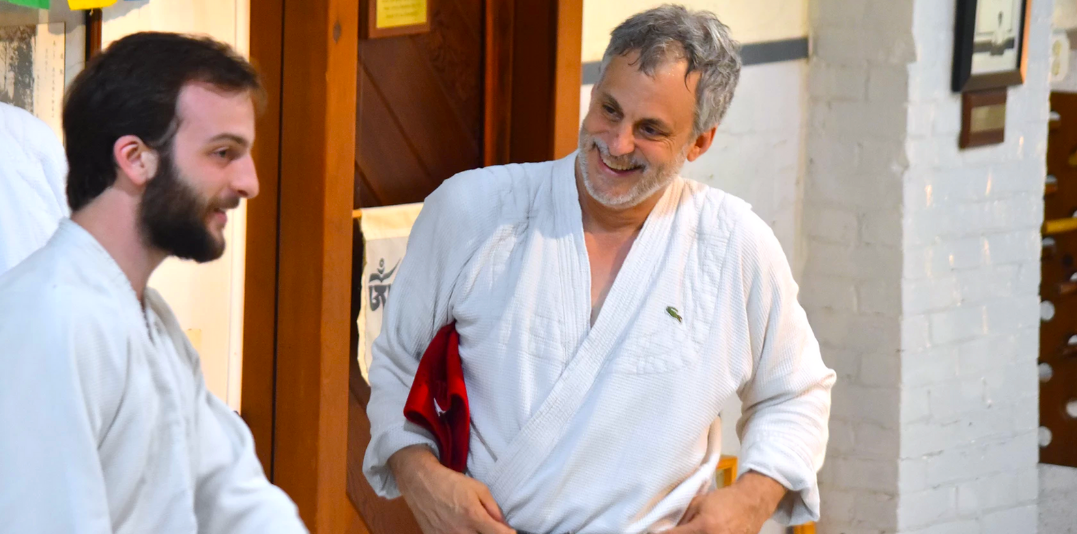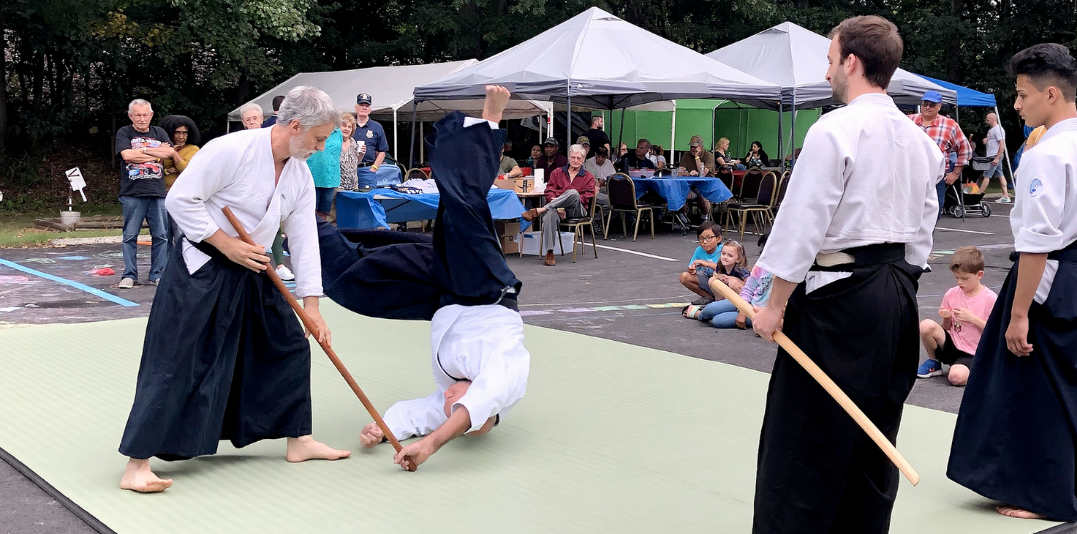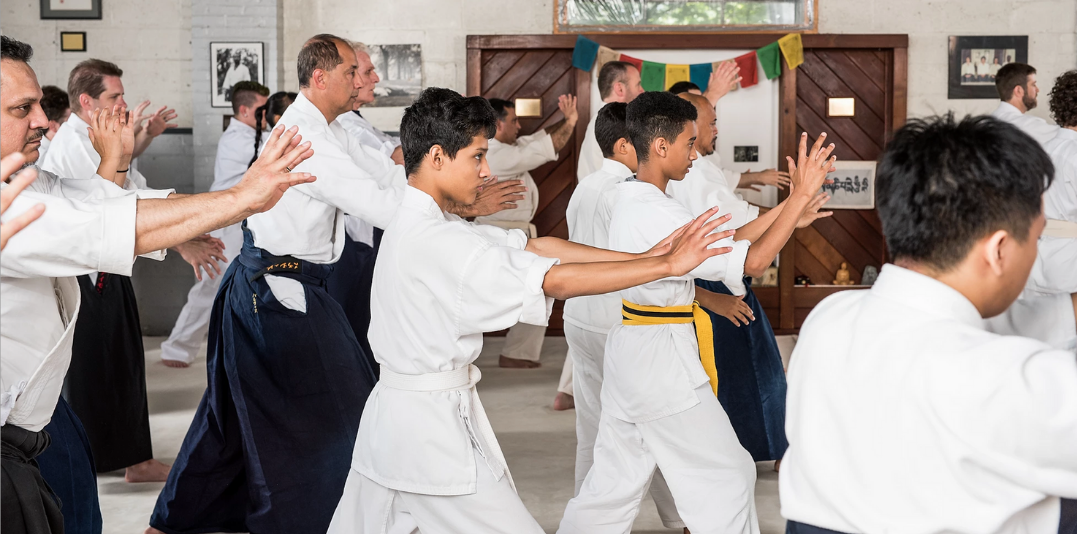Client Of The Month: Jay Tall, Aikido Schools Of New Jersey
There’s no doubt that the COVID-19 pandemic has put significant stress on the fitness industry, especially within the martial arts community, forcing many dojos to close due to restrictions and the resulting lack of enrollment. Sensei Jay Tall of Aikido Schools of New Jersey was put in this exact position and managed to not only bounce back from the low enrollment the dojo was experiencing but also expand the number of programs they offered in order to better serve the needs of their community.

Jay Tall has been the sensei of Aikido Schools of New Jersey for the past two and a half years, and since taking on that role, he has encouraged the growth of the dojo through the addition of several new classes, adjustments to the way classes are taught, and his fierce devotion to community building. His commitment to helping the dojo to flourish was not an easy journey, especially when taking the COVID-19 pandemic into account. Still, Sensei Tall has been extremely dedicated to making sure the dojo is providing the best education possible, no matter the student.
At the early stages of the pandemic, Sensei Tall was unable to keep the dojo open, which turned out to be a sort of blessing in disguise. The forced closure of both the dojo and his construction company gave Sensei Tall the time he needed research search engine optimization (SEO), update the dojo’s website, start a blog and a YouTube channel, and in Sensei Tall’s own words “everything I could to make us highly rated,”
Not only was he determined to increase the number of students that the dojo had, but he also wanted to try to keep the community together through weekly emails, which he continues to send out to this day, and have become increasingly popular.
“I had six, 700 people on the mailing list that have asked to read what I think is my stupid little letter, but it’s become a very popular thing.”

Adjusting to the pandemic
Unlike some martial arts studios and fitness classes, Aikido Schools of New Jersey opted not to pivot to online classes during the early stages of the pandemic due to the lack of interest expressed by the students. Instead, they chose to close the studio completely for almost four months before opening back up and continuing with outdoor classes for a few months until indoor classes were allowed with a long list of new protocols implemented to ensure the safety of the students and teachers. Sensei Tall took some time and assistance from a handful of his students who were educated in the fields of health and science in order to decide how to institute strict guidelines for how the dojo would operate until restrictions began to ease.
“We luckily have a big parking lot, so we practiced outside with weapons and, then three or four months after we opened, we could, with certain protocols, practice indoors.”
In addition to the protocols that were implemented for indoor classes, Sensei Tall also decided to include socially distanced classes as well as the regular classes to ensure that all his students were comfortable and still had the opportunity to practice at least some level of Aikido.
Creating an Adaptive Aikido Program
Keeping students engaged is an important part of any activity that requires time and dedication, but engagement can be hard to maintain when the ways of teaching that are being utilized are not beneficial to the students. Sensei Tall recognized that the ways in which certain classes were being taught at the dojo were not beneficial for many neurodivergent students, so he decided to create a new adaptive Aikido program with the invaluable help of his son and his son’s partner, who are in the special education field, as well as some students with backgrounds in special education and psychology.
“I took my people, the heads of the program and we all got together and we started creating this program. It took us six months of working out, coming up with ideas, how to teach, coming up with language we can use, how to change techniques so that it works, how to reduce verbal instruction and make it more repetitive.”
In addition to implementing this program at Aikido Schools of New Jersey, Sensei Tall is also planning to submit a detailed report and instructions of the adaptive program to the Aikido Federation to make it available to all the dojos and provide assistance to those interested in implementing the program.

Community building at the dojo
Although the adaptive Aikido program is one of the standout offerings at the dojo, it is not the only program that is tailored to a specific group of students.
Another new program that Sensei Tall is especially proud of is the Junior Deshi program. Junior Deshi aims to provide some of the teen students who have excelled in Aikido with leadership experience by assisting other classes, allowing them to try their hand at teaching through leading warmups and helping the other students. The teens can also get college recommendations for their work in the program as well as the occasional teen movie night at the dojo.
“That program’s been great because now they’re empowered. It’s their dojo; they’re not just members with a bunch of old folks there. That has helped the program, and then they really have coalesced into a group.”
Through his creation of new programs targeted towards different students, Sensei Tall has made it very clear that community and relationships within the community are vital in having a successful and empowering dojo.
“Everything I told you about my relationships with students and listening to what their needs are and creating it. And that’s part of Aikido that I want to make sure people don’t forget. It’s not about winning a fight. That’s not important. It’s about who you are and how you grow into that person.”
Learn more about Aikido Schools of New Jersey, or read Sensei Tall's blog here.
/Create%20and%20Launch%20A%20Successful%20Parent%20and%20Child%20Martial%20Arts%20Program.png)
/Building%20Successful%20Martial%20Arts%20After-School%20Programs.png)
/Martial%20Arts%20Against%20Bullying%205%20Important%20Factors%20in%20Building%20an%20Anti-Bullying%20Program.png)

